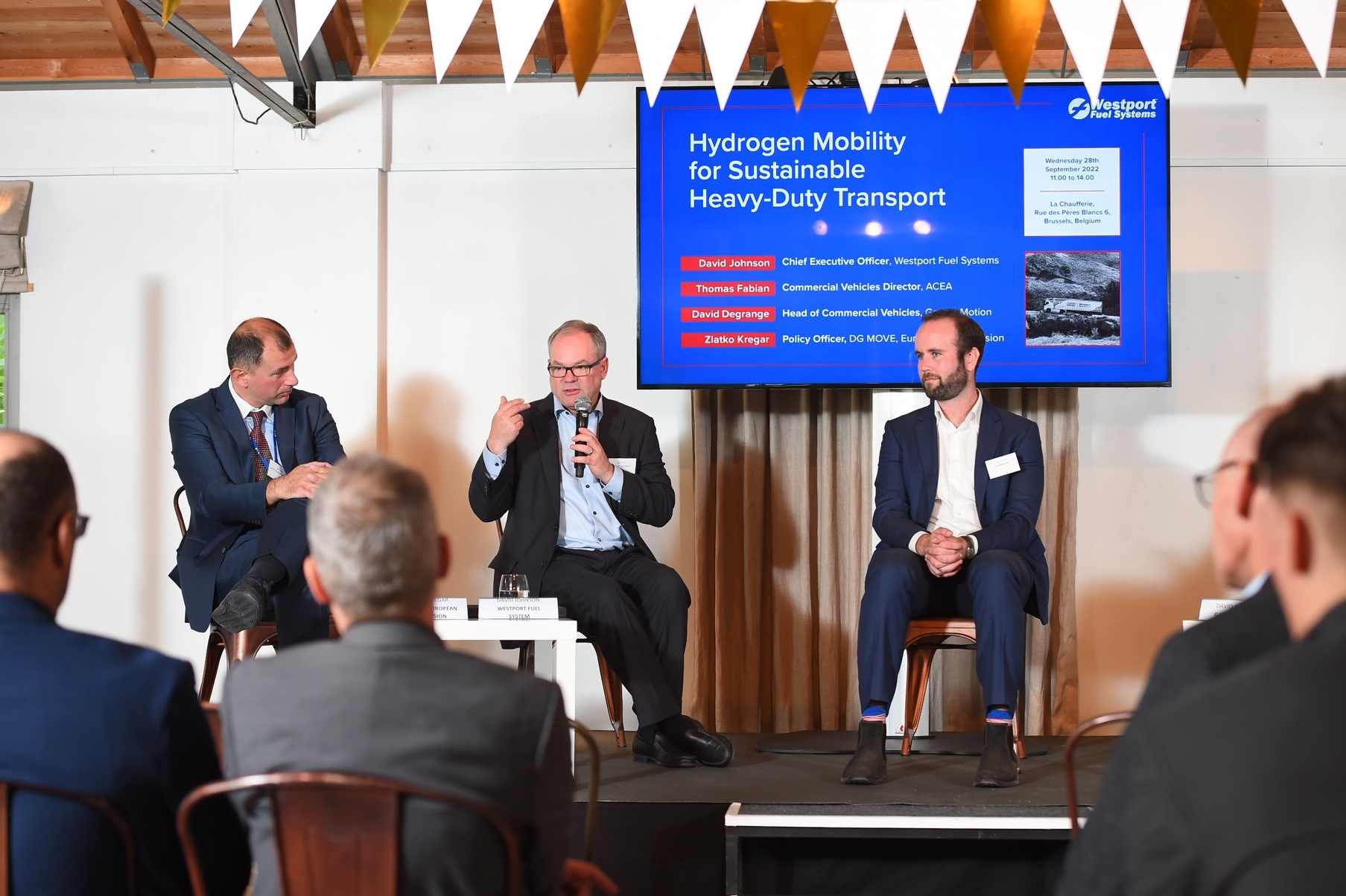
Westport Fuel Systems unveils cleantech-related fuel system for heavy-duty vehicles
by CM Staff

Westport’s hydrogen solution reportedly delivers greater energy efficiencies while allowing continuity with existing engines and manufacturing assets.

Westport Fuel Systems European Policy Panel “Hydrogen Mobility for Sustainable Heavy-Duty Transport,” in Brussels on September, 28th, 2022: panellists shown here are Zlatko Kregar, Policy Officer DG MOVE, European Commission and David Johnson, CEO Westport. Moderator is CillianTotterdell, Account Director, Energy, Climate and Transport Team FleishmanHillard.
VANCOUVER and BRUSSELS — Westport Fuel Systems Inc., a company involved in low-emissions alternative fuel transportation technologies, unveiled on Sep. 29 in Brussels to an audience of policy makers and industry representatives, its new H2 HPDI™ fuel system for heavy-duty vehicles that will reportedly reduce CO2 emissions in alignment with EU decarbonisation goals. Westport’s hydrogen solution reportedly delivers greater energy efficiencies while allowing continuity with existing engines and manufacturing assets.
This announcement comes at a critical time for Europe as it seeks to progress towards its decarbonisation targets across all sectors, including road transport. The technology presented today by Westport is intended to contribute by unlocking the potential of hydrogen in the mobility sector.
Increased Efficiencies, Technological Continuity
Hydrogen engines equipped with Westport’s H2 HPDI fuel system say they offer more efficiency across the power range, resulting in the following benefits for long-haul heavy-duty trucks:
- Up to 20 percent more power, 15 percent more torque, and 10 percent higher efficiency than diesel
- Near-zero CO2 emissions
- Continuity with existing technology, allowing for rapid deployment
- Commonality with existing manufacturing assets
- Lower cost to achieve CO2 abatement than fuel cell vehicles
“Our technology achieves better performance than diesel engines, with near-zero CO2 emissions. By maximizing the efficiency potential with hydrogen, H2 HPDI fuel systems result in cost-effective CO2 reductions for fleets and society”, said David Johnson, CEO, Westport Fuel Systems. “This is why we hope that the Commission and Member States will prioritise the availability of green hydrogen for the transport sector in the coming years and support engine technology advances that will be key for the development of the whole hydrogen transportation market”.